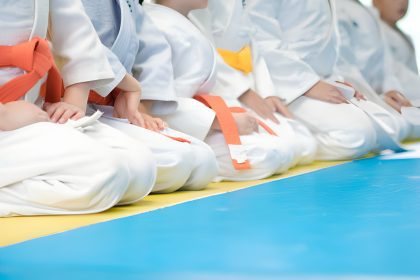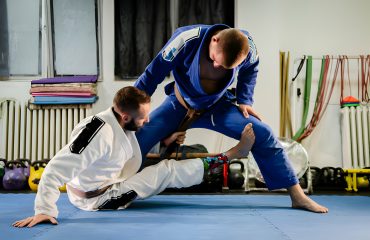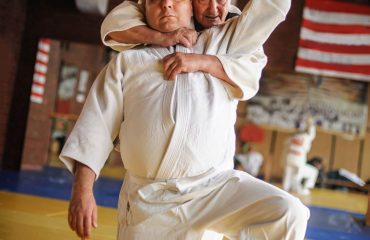
The Growing World of Kids’ BJJ
Youth participation in Brazilian Jiu-Jitsu expands exponentially as more families discover its character-building virtues. At NOCO Jiu-Jitsu and Self-Defense, we champion early introductions nurturing child development through discipline, respect, and grace foundations beyond the mats alone. This article reviews core kids’ Jiu-Jitsu merits illustrating an empowering methodology for sculpting balanced, confident young adults holistically. The lifestyle gifts more than competitive edges – it awakens healthier perspectives appreciating themselves and others equally through continual courageous self-improvement.
Why Kids’ BJJ? Understanding the Appeal
BJJ offers a unique blend of physical exercise, mental challenge, and fun, making it an ideal activity for children. It’s not just about learning self-defense; it’s about developing life skills. The structured environment of BJJ training teaches children the value of hard work, discipline, and persistence, while the playful aspect of grappling keeps them engaged and excited about learning.
- Physical Fitness: BJJ nurtures comprehensive physical conditioning – building strength, flexibility, and reflex sharpening unilaterally. Training activates more complete muscular development compared to traditional sports targeting isolated groups alone. The full-body engagement elicits optimized cardiovascular responses vital for childhood growth and lifelong wellness foundations. Instead of just chasing external benchmarks, students gain inward awareness through motivated holistic improvements sustained long-term.
- Mental Acuity: The strategic nature of BJJ enhances problem-solving skills. Children learn to think under pressure, developing critical thinking and decision-making skills that are applicable in everyday life. The mental challenges presented in BJJ classes help sharpen their minds, improving focus and concentration.
- Social Interaction: BJJ studios facilitate positive social growth progressions – forging supportive peer bonds through shared adversities. Partner drills instill cooperation, empathy, and responsibility values improving interactions. Classmates transform into lifelong confidants through mutual maturation. Nurturing interpersonal intelligence and genuine belonging during developmental years gifts tools benefiting all future relationships immensely. Beyond the physical lessons learned, the emotional connections made multiply one’s support ecosystems exponentially.
The Role of BJJ in Character Development
One of the most significant benefits of BJJ for children is its role in character development. The principles and values taught on the mat extend far beyond the gym. These lessons shape children into responsible, confident, and resilient individuals, preparing them for various life situations.
- Discipline and Respect: Learning the importance of discipline and respect for others is fundamental in BJJ. Children learn to follow instructions, adhere to class structure, and respect their instructors and peers. This respect extends to understanding the importance of the uniform (Gi), the etiquette of the dojo, and the discipline required to master techniques. These lessons in discipline and respect often translate to better behavior at home and in school.
- Confidence Building: How BJJ helps children build self-esteem and confidence is remarkable. Through mastering new techniques, achieving belt promotions, and overcoming challenges in sparring sessions, children develop a sense of accomplishment and self-worth. This confidence is not about arrogance; it’s about believing in their abilities and having the courage to try new things, both on and off the mats.
- Resilience and Perseverance: Teaching kids to face challenges and learn from setbacks is a crucial aspect of BJJ. Children learn that losing a match or struggling with a technique is not a failure, but an opportunity to learn and grow. This mindset helps them deal with disappointments and challenges in other areas of their lives, fostering a resilient spirit that doesn’t give up in the face of adversity.
In BJJ, children are taught that progress is a process, not a destination. They learn the value of hard work, patience, and persistence. These lessons in resilience and perseverance are invaluable, equipping children with the mindset and character to navigate the ups and downs of life successfully. At NOCO Jiu-Jitsu and Self-Defense, we take pride in seeing our young students grow not just as martial artists, but as individuals with strong character and values.
Safety First: BJJ as a Safe Sport for Kids
Safety is a top priority in kids’ BJJ. We’ll discuss how BJJ can be a safe and rewarding experience for children, with proper supervision and age-appropriate techniques. At NOCO Jiu-Jitsu and Self-Defense, we ensure that our young practitioners learn in an environment where safety is paramount. Our instructors are not only skilled in BJJ techniques but are also trained in teaching methods that prioritize the well-being of children. We understand that each child is unique, and we tailor our approach to suit their individual needs and capabilities.
In our classes, we focus on teaching techniques that are suitable for children’s developing bodies. We avoid high-impact moves and emphasize control and technique over strength and aggression. This approach minimizes the risk of injury and makes BJJ an ideal martial art for children of all ages and sizes. Our mats are a place where children can explore and learn without fear of getting hurt. We also educate our young students about the importance of respecting their limits and those of their training partners. This education fosters a safe training environment where children look out for one another, creating a supportive and nurturing community.
Moreover, we incorporate fun and engaging activities into our training sessions to keep the children motivated and excited about learning. By blending learning with play, we ensure that children associate BJJ with positive experiences, encouraging a lifelong love for the sport. Our goal at NOCO Jiu-Jitsu and Self-Defense is not only to teach children the techniques of BJJ but also to instill in them a sense of responsibility for their safety and the safety of others. This holistic approach to teaching BJJ ensures that children enjoy the sport while learning valuable life skills in a safe and caring environment.
NOCO Jiu-Jitsu and Self-Defense: A Place for Young Grapplers
At NOCO Jiu-Jitsu and Self-Defense, we offer a welcoming and supportive environment for children to learn and grow through BJJ. Our program is designed to nurture young minds and bodies, focusing on more than just martial arts skills. We aim to instill values and life skills that will benefit our young grapplers in all areas of their lives.
- Our Kids’ BJJ Program: Our classes are structured to cater to different age groups, ensuring that each child receives age-appropriate instruction. The curriculum is a blend of technical training, physical fitness, and fun activities, making learning enjoyable and effective. We focus on creating a balanced environment where discipline and play go hand in hand. Our teaching philosophy revolves around positive reinforcement, patience, and encouragement, helping each child to reach their full potential in a supportive setting.
- Success Stories: The testimonials from parents and young athletes are a testament to the impact of our program. Parents often share stories of remarkable improvements in their children’s confidence, focus, and social skills since joining our classes. Young athletes speak of the fun they have in learning new techniques and making friends on the mats. These success stories are not just about victories in competitions; they’re about personal growth, overcoming challenges, and the joy of being part of the BJJ community.
Our commitment at NOCO Jiu-Jitsu and Self-Defense extends beyond teaching BJJ techniques. We strive to create a positive and nurturing environment where children can develop holistically. Our program is about building character, fostering respect, and encouraging a healthy lifestyle, all while having fun and learning the art of Brazilian Jiu-Jitsu.
Engaging Kids in BJJ: Tips for Parents
For parents nurturing youth Jiu-Jitsu interests thoughtfully, we offer guiding perspectives easing introductions optimally. Approaching involvement from places of compassion and motivation fuels positive experiences exponentially. A child’s developmental progress hinges profoundly on parental enthusiasm to cultivate new pursuits collaboratively. Together we transform perceived limitations into realized potential gradually. Let us unlock your child’s capabilities in unison – contact us to get started today!
- Choosing the Right Gym: What to look for in a kids’ BJJ program includes more than just the facilities. Seek out a gym with a positive atmosphere, experienced instructors who are good with children, and a curriculum that balances technical skill with fun. It’s important that the gym values safety and promotes a respectful and inclusive environment. Observe a class, talk to other parents, and see how the instructors interact with the students. The right gym should feel like a welcoming community for your child.
- Supporting Your Child’s BJJ Adventure: How to be an encouraging and supportive presence involves more than just driving them to classes. Engage with your child about what they learned in class, celebrate their progress, and encourage them to practice at home. Attend competitions or exhibitions if they choose to participate, showing them that you value their efforts and achievements. It’s also crucial to listen to their challenges and frustrations without judgment, offering guidance and reassurance. Remember, the goal is to foster a love for the sport and help them develop valuable life skills.
Additionally, educating yourself about BJJ can help you better understand what your child is experiencing and learning. This can be as simple as learning the basic rules and objectives or as involved as participating in a parent-child class if available. Your interest and understanding of BJJ will show your child that you value and respect their interests, further strengthening your bond and their commitment to the sport.
The Fun Side of BJJ: Making Learning Enjoyable
BJJ is not all about hard work; there’s plenty of fun to be had. We’ll explore how BJJ classes incorporate games and playful activities to keep children engaged and excited. These activities are designed not only to make learning enjoyable but also to reinforce the skills being taught. Games like “guard tag” and “takedown tower” turn fundamental BJJ movements into playful challenges that children love. This approach helps in building a positive association with learning and practicing BJJ, making each class something they look forward to.
Moreover, these fun activities serve a dual purpose. They not only keep the classes lively but also subtly teach important BJJ principles like balance, coordination, and spatial awareness. For instance, a game that involves maneuvering around obstacles on the mat can enhance a child’s ability to maintain balance and control, crucial skills in BJJ. This method of teaching ensures that children absorb fundamental skills without the monotony of repetitive drills, fostering a love for the sport from a young age.
Additionally, incorporating fun into BJJ classes helps in developing social skills among young practitioners. Activities that require teamwork or friendly competition encourage children to interact, communicate, and build friendships. This social aspect of BJJ is often what keeps children motivated and excited about attending classes. It creates a sense of community and belonging, which is essential in maintaining long-term interest in any activity. At NOCO Jiu-Jitsu and Self-Defense, we understand the importance of this balance between learning and fun, and we strive to create an environment where young students can thrive both on and off the mats.
Shaping Future Champions, On and Off the Mat
Kids’ BJJ is about more than producing future champions; it’s about shaping well-rounded individuals. Join us at NOCO Jiu-Jitsu and Self-Defense to give your child the gift of BJJ – an adventure filled with growth, learning, and joy. Ready to empower your child with the benefits of Brazilian Jiu-Jitsu? Contact NOCO Jiu-Jitsu and Self-Defense today to enroll your child in our kids’ BJJ program. Let’s start on this exciting adventure together, fostering a generation of confident, disciplined, and healthy individuals.
Frequently Asked Questions:
- What is the ideal age for a child to start training BJJ?
BJJ can be safely started as young as 5 years old. Ages 7-9 tend to show greater focus on managing technique details longer term.
- How can BJJ help children who struggle with focus or discipline?
The technical challenges and structured class format strengthen mental endurance, situational awareness, listening ability, and self-control.
- Will BJJ classes injure my child or stunt their growth?
With proper supervision and age-appropriate training, BJJ is safe for kids and won’t restrict growth if techniques remain within natural joint limitations.
- Can timid children benefit from martial arts like BJJ?
Yes, the supportive positive environment combined with inner confidence cultivated from learning self-defense often transforms shy kids into more well-adjusted youths.
- How can I qualify for a reputable kids’ BJJ gym before enrolling?
A top kids’ gym emphasizes safety, tailored instruction, ethical values, and fun through games teaching fundamentals indirectly.
- What should disqualify a BJJ coach from leading kids’ classes?
Harsh disciplinarians lose patience easily, egotists craving submission “wins” from children, or irresponsible supervision risk unsafe environments for impressionable students.
- How does kids’ BJJ differ from adult martial arts classes?
Prioritizing safety, tailored games-based learning, and positive encouragement over intense sparring or advanced techniques.
- Can BJJ help young students improve focus and confidence?
Yes, the technical challenges strengthen mental resilience, emotional regulation, situational awareness, and self-assuredness exponentially.
- At what age can my child start sparring with other students?
Light playful sparring incorporating fundamentals can start as early as 6-7 years old, while moderate resistance grappling waits until the early teenage years.
- How can parents support kids’ BJJ progress at home positively?
Show interest in lessons, highlight effort over results, provide encouragement after losses, and remain patient as skills develop inconsistently initially.

![[Downloader.la]-65f181f4cdeca](https://b3007865.smushcdn.com/3007865/wp-content/uploads/2024/03/Downloader.la-65f181f4cdeca-370x240_c.jpg?lossy=1&strip=1&webp=1)


